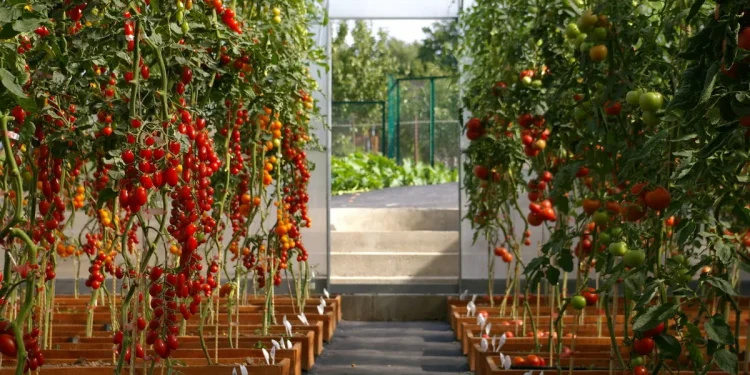The agricultural landscape of Edo State is undergoing a transformative shift as the Federal Ministry of Agriculture and Food Security launches a strategic initiative to bolster tomato production. This development is poised to attract attention from investors and entrepreneurs seeking promising opportunities within Nigeria’s agricultural sector.
In a targeted effort to enhance tomato cultivation, the Ministry has distributed high-quality seeds to over 500 smallholder farmers across the state. Spearheaded by Samuel Owoicho, the State Director of Agriculture, the initiative is coordinated through the All Farmers Association of Nigeria (AFAN). This move not only aims to increase self-sufficiency but also to stabilize and potentially reduce the market prices of tomatoes, a staple in Nigerian diets.
The initiative is built on the foundation of Nigeria’s robust agricultural potential, leveraging the country’s fertile soil and favorable climate conditions. To ensure the success of this program, the Ministry has taken a comprehensive approach, providing training on best practices in tomato cultivation. This training is critical for optimizing both yield and quality, equipping farmers with the knowledge needed to navigate the challenges of modern agriculture.
A notable aspect of this initiative is the collaboration with research institutions and seed companies to develop improved seed varieties. These varieties are specifically designed to resist common pests and diseases, and they are well-adapted to the local climate, ensuring that farmers can achieve better outcomes with reduced risk.
Moreover, the Ministry is offering subsidized access to essential farming inputs, including fertilizers and pesticides. This support is crucial in alleviating the financial burden on smallholder farmers, enabling them to focus on scaling their operations without being hindered by prohibitive costs.
Bako Dogwo, the state Chairman of AFAN, has praised the government’s efforts, underscoring the potential for this initiative to significantly boost tomato production. By reducing dependency on imports and addressing the high cost of tomatoes, this program not only contributes to Edo State’s agricultural development but also strengthens Nigeria’s food security.
For investors and entrepreneurs, this initiative represents a strategic opportunity. The combination of government support, improved agricultural practices, and an emphasis on sustainability makes Edo State an attractive destination for those looking to invest in the future of agriculture. As the global demand for sustainably grown produce continues to rise, initiatives like this one set the stage for long-term growth and profitability in the sector.










